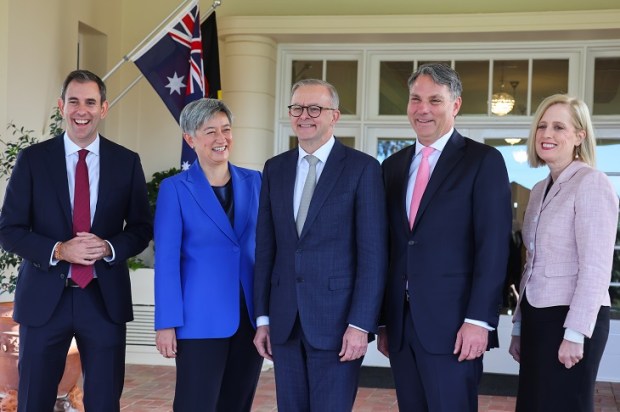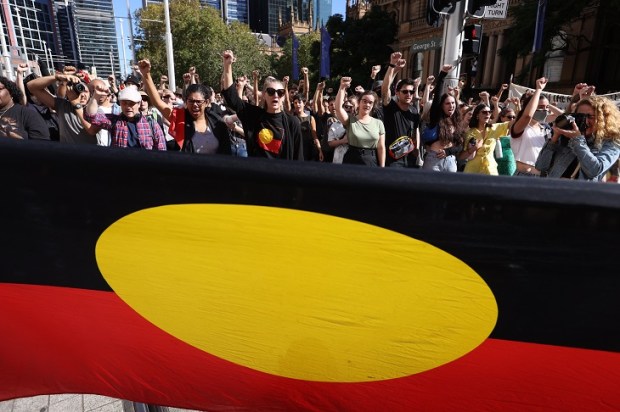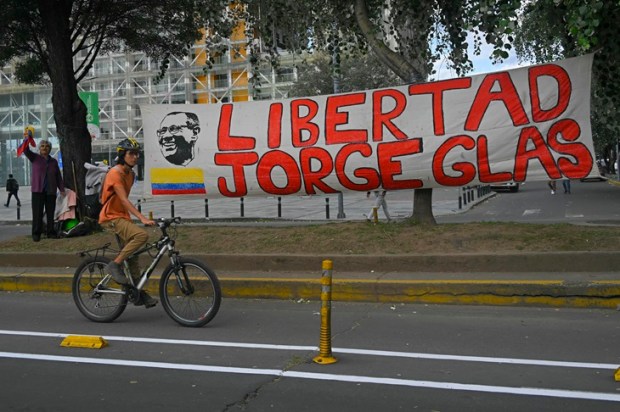We humans have always been emotional. It is part of who we are as self-conscious beings. But the use of emotion as a basis for truth in discussions about the Voice belongs more to the theatre of the absurd than intelligent reasoning.
Even that comparison may be unfair to the masters of the absurd as I see much more challenge to deep thought in Beckett’s Waiting for Godot than I do in much of what is currently swirling around the Voice.
I try to make sense of questions such as: What will other people think of us? Will we lose our international standing? Will you be able to look at an Aboriginal person in the face again? And comments along the lines of, ‘This will be the death of this party…! I tore up my membership card! This is just a matter of decency, but if you vote no, you are racist!!!’
The only sense I see in the last kind of comment is irony.
You see, I grew up in a context where wisdom was sought in doing what was right while you helped others. In that sense, I sometimes took risks to be different (including the risk of being ridiculed and bashed at school after asking for more work).
Reputation was something to be sought from those who were wise, not those who were popular or influential. Respect was to be offered to everyone who appeared in front of you, regardless of their background and amount of agreement or disagreement with you. Faithfulness was lauded over cleverness. Decency meant agreeing to live in gratitude for the opportunities in front of us, not in pleasing others at all costs. ‘As far as it depends on you, be at peace with everyone…’ was the lesson from the Old Book.
So why do emotional appeals seem to work so well in this modern debate? I think Alasdair MacIntyre was right – we live in an era where we do not have a common mind about what is virtuous. Instead, we live in an age of emotivism. The self-referenced self has become an absolute that has replaced any notion of natural law and common good. More than that, the peak expression of this emotivism is not doing good, but in feeling good by being authentic to our personal criteria, whether these be sexual, environmental, or tribe related.
It is why so many of the decontextualised emotivist pleas about the Voice come across as sincere – because they are.
I believe our Prime Minister is sincere, but he is sincere within his emotivist (and politically cunning) way. That is why his motherhood statements carry so well, but his logical defence is so poor. The legion of media surrounding our politicians depend for a living on reporting such feeling-based pleas. They are by instinct and training naturally attuned to this genre of communication and embrace it within their sincerity.
Sadly, sincerity is not the same as honesty. To be honest, one has to appeal to justice. To appeal to justice, one has to have a coherent understanding of society. This consistency must be based on what we term ‘the rule of law’ and ‘universal respect towards mercy’ that applies to everyone without distinction.
MacIntyre explained why this dynamic is so important in the preface to the third edition of his work. With the help of an old friend called Aquinas, MacIntyre realised that he could not define the ‘social good’ only in social terms. He came to understand that our narrative of ourselves needs a stronger metaphysical grounding. Otherwise, we become means to each other’s ends. Without such a metaphysic, we use each other for our own good feelings. We lose the capacity to be interdependently doing good and helping each other because we have no frame of reference bigger than our individual or collective selves.
And this is where we are with the Voice. We are being asked to pit one group against another as a means to their end, and then believe that somehow this will satisfy everyone. It does not make sense. If I, as a non-Aboriginal, am being used for fulfilling another group’s social identity, then we are to be forever split. If ‘being Australian’ does not fit everyone who now lives here, whatever their journey here, then we no longer have a single nation. As Warren Mundine has pointed out, this is no road to reconciliation because it enshrines guilt and perennial recompense, and not repentance and forgiveness.
Forgiveness is an appeal to an order greater than my individual sensitivities or clan loyalties. Forgiveness requires a desire to help the needy in front of you, regardless of who they are. Perhaps Mother Teresa, understanding her own humanity, is a role model of being forgiven and then responding by taking mercy to the streets and gutters of India.
It is hard to see this gracious spirit in the emotivism of the Voice proponents. I see not mercy, but judgment. I hear not justice, but revenge. I see not goodness, but convenience. It comes out most strongly if one dares asks questions about how the Voice might work. What can be seen is what MacIntyre predicted – indignation rather than charity.
But now I understand why my correspondence does not get answered, nor do Peter Dutton’s questions. The Voice promoters are so sincere in their belief that they cannot understand how any good person could even ask questions about this proposition. How could a good person fail to buy into the accumulated emotions of those who have spent so much of their personal selves on this Voice project? Voice advocates cannot see past their own commitment because the self-referencing circle cannot let them see anywhere else. Such is the power of our self-conscious validation of what is authentic to me, myself, and I.
So when you are confused by the emotion surrounding the Voice and why it is there, reflect on MacIntyre’s hopeful conclusion to his tome, and work towards it:
But those elites never have the last word… When recurrently the tradition of virtues is regenerated, it is always in everyday life, it is always through the engagement by plain persons in a variety of practices, including those of making and sustaining families and households, schools, clinics, and local forms of political community.
Got something to add? Join the discussion and comment below.
Get 10 issues for just $10
Subscribe to The Spectator Australia today for the next 10 magazine issues, plus full online access, for just $10.


























Comments
Don't miss out
Join the conversation with other Spectator Australia readers. Subscribe to leave a comment.
SUBSCRIBEAlready a subscriber? Log in